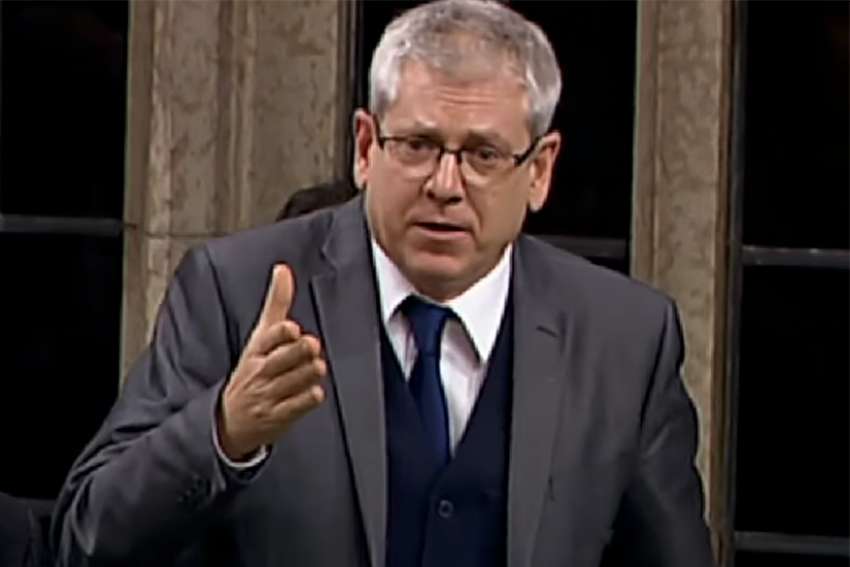In an open letter to the Prime Minister dated April 2, NDP MP Charlie Angus said he will present a motion to the House of Commons intended to put pressure on the bishops.
“I certainly recognize that it is unprecedented for Parliament to call upon the bishops to step up,” said Angus. “But, to me, that’s more of an indication that the Church is not doing its part… as part of the process of reconciliation.”
Angus believes the March 27 announcement that the Pope “could not personally” come to Canada does not mean Francis has said no to Canada, but indicates a reluctance by the Canadian Conference of Catholic Bishops (CCCB) to formally invite him. Protocol dictates that a papal visit must start with an invitation from the local bishops conference.
The CCCB has never said if it extended an invitation which was declined, or if there was a consensus to not invite the Pope. Attempts to get the conference to clarify this point by The Register’s deadline were unsuccessful.
In its letter to Indigenous peoples, the CCCB did not specifically address the matter of a formal invitation. The letter spoke of careful consideration of the TRC request for an apology and extensive dialogue with Canadian bishops, and concluded simply that the Pope “felt that he could not personally respond.”
The letter said the bishops remain committed to the work of reconciliation and that the Pope did not rule out a visit in the future.
Angus said he was “dumbfounded” by the letter. He calls reconciliation a “fundamental issue of Canada at this time,” saying “the Church needs to be part of that” and should encourage that process by inviting the Pope.
“I go to Mass, I see dream catchers on the altar, I get invited to church events to talk about reconciliation,” said the Catholic politician. “For me, if the Catholic Church is to play a part, then they have to respond.”
However, religious freedom experts are troubled by the proposed motion, which can call on the bishops to take a specific action but not bind them to do so.
“No religious community should face this kind of political pressure and I am concerned about the precedent it sets,” said Barry Bussey, director of legal affairs for the Canadian Council of Christian Charities. “If the goal of the motion is to further reconciliation, then that ought to be done outside of the political arena.”
Other critics point out there has already been papal apology.
“Our two previous popes both reached out to Canada’s aboriginal communities in unique ways — the first by St. Pope John Paul II with the special visit to Fort Simpson in 1987, and by the apology provided by Pope Benedict XVI in April 2009 at the Vatican in a special delegation headed by then National Assembly of First Nations Chief Phil Fontaine,” said Phil Horgan, a constitutional lawyer and president of the Catholic Civil Rights League.
Bussey said Catholic leaders “have clearly been seeking to bring about a reconciliation, as Pope Benedict’s apology gives evidence.”
“However, for Parliament to now enter the fray and seek to apply political pressure on this religious community because of some political expedience strikes me as a heavy-handed approach.”
The NDP motion would also call on the bishops to raise the money called for in the Indian Residential Schools Settlement Agreement (IRSSA) and to turn over all relevant documents to survivors.


